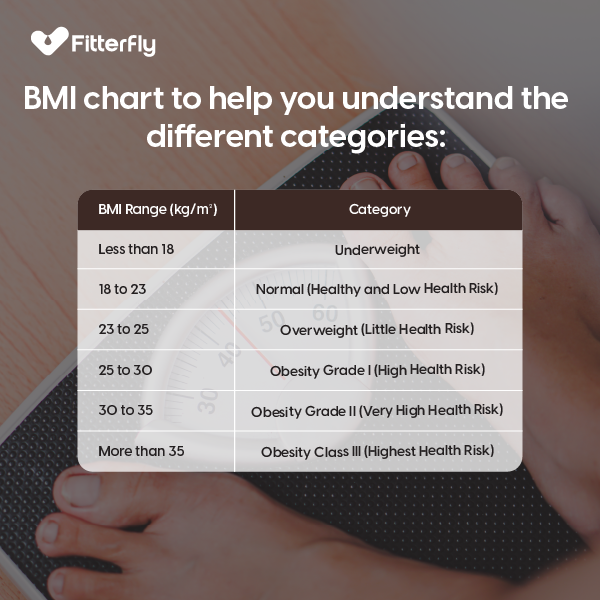Is It Possible to Lose Weight in One Month?

Losing weight is a common goal for many, especially when a special event is just around the corner. The big question often asked is: “Is it possible to lose weight in one month?”
The short answer is that you can see a difference in your weight, but expecting drastic changes may not be realistic or healthy. To understand this better, we need to understand certain aspects like BMI and how diet plays a major role in weight loss.
If you’re looking to lose weight in a month, it is crucial to focus on a balanced diet and regular exercise. Many people aim to reduce weight in 1 month by making significant lifestyle changes, but it is important to set achievable goals.
Instead of extreme measures, consider sustainable habits that contribute to overall well-being. By adopting a healthy routine, you can steadily lose weight in a month and maintain those results long-term.
However, starting or sticking to an exercise routine can feel challenging, especially if you’re dealing with discomfort or are unsure how to begin safely. That’s where Fitterfly’s 1-on-1 online physiotherapy consultation can make a difference. Fill out the form below, and our experts will guide you with personalized exercises tailored to support your weight loss journey effectively.
What is BMI?
Body Mass Index (BMI) is a measure that helps to understand your weight in relation to your height. It’s a useful indicator to determine whether you are underweight, normal weight, overweight, or obese.
While it can guide you, remember that BMI doesn’t consider muscle mass.
Body Mass Index (BMI) is a measure that helps to understand your weight in relation to your height. It’s a useful indicator to determine whether you are underweight, normal weight, overweight, or obese.
However, BMI only takes into account your total body weight and height, not differentiating between weight from body fat and muscle mass.
Note: While BMI can provide a general guideline, it does not consider the composition of your weight, such as how much is muscle versus fat.
According to the National Institutes of Health (NIH), BMI can be defined as a person’s weight in kilograms (kg) divided by his or her height in square meters.
Here’s a simple BMI chart to help you understand the different categories:

*Remember, while BMI is useful, it doesn’t account for muscle mass, bone density, or body composition. Use it with other measures for a complete health picture.
- For those who are overweight or obese, the risk can include health conditions like angina, coronary heart disease, type 2 diabetes, hypertension, hypercholesterolemia, metabolic syndrome, gall stones, stroke, cancer, reproductive diseases, and sleep apnea.
- Conversely, people who are underweight may suffer from eating disorders like anorexia and bulimia, as well as stress and mental disorders.
Understanding your BMI and the associated health risks can help you maintain a healthy weight and reduce the risk of various diseases.
How Does Diet Affects Your Weight?
Your diet plays a crucial role in weight loss. It’s not just about eating less, but about eating right.
Many people think that by drastically cutting down on food, they will lose weight quickly. However, this can lead to malnutrition, which is harmful to your body.
Instead, focus on a balanced diet rich in proteins, vitamins, minerals, and healthy fats.
Our Indian diet is diverse and mostly rich. We often overeat when we see our favorite dishes like biryani, butter chicken, or shahi paneer.
Instead, incorporate foods like dals, lean meats, fish, green leafy vegetables, fruits, and whole grains. Avoid processed foods, sugary snacks, and fried foods. Remember, it’s not about EATING LESS, but EATING RIGHT!
Why Weight Loss Varies from Person to Person?
Weight loss is not the same for everyone. Factors such as age, gender, genetics, metabolism, and current weight all play a part.
Some people may see significant changes within a month, while others might see slower progress. The key is to stay patient, consistent and not give up.
Progress may look different for everyone, but staying consistent is key. If pain or discomfort is slowing you down, Fitterfly’s 1-on-1 online physiotherapy consultation can help. Fill out the form below to get personalized support and keep moving toward your goals with confidence.
The Importance of Exercise
Exercise is equally important in your weight loss journey. It helps burn calories and improves your metabolism.
More importantly, it aids in muscle toning and strengthening. Regular physical activity can also improve your mood and overall health.
Activities like yoga, walking, running, or traditional sports like kabbadi, kho-kho etc can be very effective. Aim for at least 30 minutes of exercise on most days of the week.
This doesn’t mean you need to hit the gym hard; even moderate activities like brisk walking, or walking in your building, taking the stairs instead of the life or dancing can make a difference.
5 Tips for Sustainable Weight Loss
1. Have a Balanced Diet
A balanced diet is the cornerstone of any weight loss plan. This means consuming a variety of foods from all the major food groups to ensure you get all the essential nutrients your body needs.
- Proteins: Include sources like lentils (dal), chickpeas (chana), eggs, lean meats, and dairy products. Proteins help in muscle repair and growth.
- Carbohydrates: Opt for complex carbs like whole grains (brown rice, whole wheat, millets), vegetables, and fruits. They provide sustained energy.
- Fats: Healthy fats are vital. Include nuts, seeds, avocados, and oils like peanut oil, soybean oil and mustard oil in your diet.
- Vitamins and Minerals: Fruits and vegetables are rich in vitamins and minerals. For example, spinach provides iron and calcium, while oranges offer vitamin C. Eating a variety of these can help cover a broad spectrum of nutrients.
- Hydration: Water, chaas, lassi, sattu, coconut water, and herbal teas are excellent for keeping hydrated without extra calories.
2. Do Regular Exercise
Exercise is important for burning calories and maintaining a healthy metabolism. It also has numerous benefits for your physical and mental health.
- Cardio: Activities like walking, running, cycling, and swimming help burn calories and improve heart health. Aim for at least 150 minutes of moderate aerobic activity per week.
- Strength Training: Incorporate exercises like weight lifting, resistance band exercises, or body-weight exercises (push-ups, squats). Strength training helps build and maintain muscle mass, which boosts your metabolism.
- Flexibility and Balance: Activities like yoga and pilates improve flexibility, balance, and mental well-being.
3. Stay Hydrated
Staying hydrated is often overlooked but is essential for weight loss and overall health.
- Water: Aim to drink at least 8-10 glasses of water a day. Water helps in digestion, keeps your skin healthy, and can aid in controlling hunger.
- Healthy Beverages: Include drinks like green tea, which is rich in antioxidants and can boost metabolism, and coconut water, which is hydrating and provides essential electrolytes.
4. Take Adequate Sleep
Sleep plays a significant role in weight management. Lack of sleep can affect your hunger hormones and increase cravings for unhealthy foods.
- Sleep Duration: Aim for 7-8 hours of quality sleep each night. Establish a regular sleep schedule by going to bed and waking up at the same time every day.
- Sleep Environment: Create a conducive sleep environment by keeping your room dark, quiet, and cool. Avoid screens and heavy meals before bedtime.
5. Avoid Crash Diets
Fad diets and crash diets might promise quick results, but they are not sustainable and can even be harmful. So, we urge our readers to steer clear from anything that tells you “loose weight in 7 days” or “eat this to lose belly fat overnight” or such bogus claims.
You will only end up harming your body in the long run. So, why are these type of diets bad?
- Nutritional Deficiency: Extreme diets often eliminate entire food groups, leading to nutritional deficiencies and health issues.
- Metabolism: Drastically cutting calories can slow down your metabolism, making it harder to lose weight in the long run.
- Sustainable Practices: Instead of crash diets, focus on making long-term dietary changes. This includes portion control, mindful eating, and allowing occasional treats without guilt.
Lost 22 kg in just 3 months!


70kg
Happy members
EMI
Guarantee
4.8/5
Weight Loss Program
How We At Fitterfly Can Help You?
While expecting significant weight loss in one month might not be practical, you can certainly see a noticeable difference by adopting a healthy lifestyle. Focus on balanced nutrition, regular exercise, and staying hydrated.
Remember, weight loss is a gradual process, and consistency is key. Embrace a healthier lifestyle, and the results will follow.
At Fitterfly, we offer personalized weight loss coaching with three experts who guide you on nutrition, fitness, stress, sleep, pain, and time management. Our program includes detailed fitness, stress, and sleep reports to tailor guidance.
We focus on behavioral therapy to help you develop and maintain healthy habits, with psychologists to support you. Doctors trust our scientifically proven, cost-effective program that uses home-cooked meals and home-based exercises, avoiding supplements.
We use top technology and a holistic approach to help you reach your health goals and build long-term habits. We provide group sessions, a digital library of tips, and customized meal plans, all within a supportive community.
We address your challenges and provide personalized strategies, focusing on your overall well-being to ensure you feel strong, joyful, and confident throughout your journey.
To know more about our program, visit check Fitterfly Weight Loss program, or just give us a missed call at 08068507599, and our program advisor will reach out to you.
This blog provides general information for educational and informational purposes only and shouldn't be seen as professional advice.


















